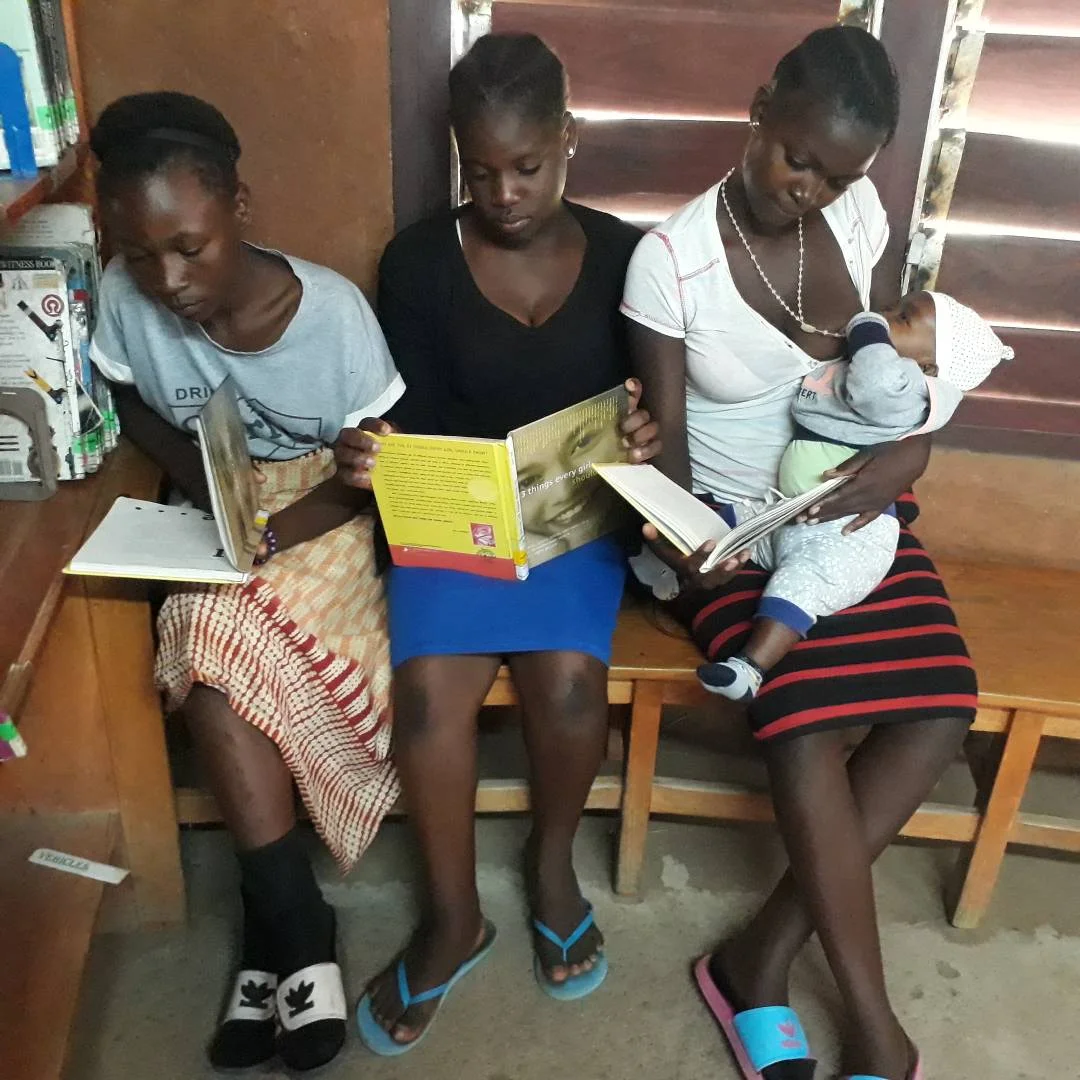Who we serve
Lubuto recognizes that programs that only serve marginalized children stigmatizes them by separating them. One strength of the Lubuto model is that public libraries are universally inclusive, connecting all young people with resources and support—and even their communities and the world. The primary beneficiaries of the libraries are children in targeted communities (identified in consultation with government and local authorities), including street children, out-of-school youth, children with disabilities, OVCY (orphans and vulnerable children and youth) who have experienced trauma, and those living in dire, isolated or exploitative circumstances, including early marriage, pregnancy and childbirth. All young people in society directly benefit from these public libraries, where everyone shares resources without stigma. Families and communities connected to OVCY are also primary beneficiaries. Other primary beneficiaries are librarians, whose capacity to effectively provide library services to children and youth is built by Lubuto. Secondary beneficiaries include educators, who are professionally guided in the use of library resources to support teaching, and program and social service providers, who reach primary beneficiaries through the Lubuto Library platform.
Millions of children who need support
A breakdown in the process of integrating young people into society, as a result of the HIV/AIDS pandemic, conflict, systemic breakdown and poverty, has deprived millions of African children and youth of the ability to claim even the most basic of their fundamental rights. Rapid population growth threatens to magnify this crisis. Many, including OVCY (orphans and vulnerable children and youth) and those with disabilities, fall outside of the civil framework that affords personal safety, educational opportunity and a route to a livelihood. The weight of this problem has overwhelmed the traditional safety net of the extended family and supportive community. Providing paths to social inclusion and its associated rights is a moral, economic and security imperative.
OVCY often lack adult guardians who, in addition to providing food and shelter, create the connections and teach the customs and cultural behaviors that make their children part of the communities in which they live. This link with the social framework—laws and enforcement, and health and education services—is a prerequisite for growth into productive adults. Without it, the path to a healthy and productive life disappears.
African nations are facing multiple challenges in securing basic rights and caring for their OVCY, including:
trauma and emotional difficulties resulting from violence, deprivation and loss
low levels of literacy
lack of support for early childhood intellectual and emotional development
withdrawal from or the inability to attend school
limited opportunities for positive economic and social engagement
lack of role models, mentors or clear pathways to success
social stigma and gender inequality
decisions and actions that lead to poor health outcomes, shortened lifespans and perceived and real social threats
lack of an institutional framework and platform for service delivery to OVCY
The status quo
Governments are struggling to protect the rights of all children, ensure their physical and psychological well-being, and provide them with opportunities to reach their potential. The needs of very young children, teenagers and young adults are generally overlooked because of economic constraints and limited development of effective educational and support infrastructure to provide the social "safety net" needed to connect OVCY with programs and services.
OVCY, for the most part, lack the understanding required to take their lives in a productive direction. They are forced to focus on the day-to-day challenges of survival. The support required to escape from this marginal situation, including help from extended families, communities, and government-supported institutions, is missing. OVCY—including girls and children with disabilities—need to be enabled to recognize their rights to an education, to protection and support, even to an identity. The stigma associated with their vulnerable circumstances often robs them of their very humanity in the eyes of society.
Because this problem is complex, Lubuto's strategy for addressing it is dynamic and adaptive. The solution advances beyond the generic education-oriented approach, which targets the mainstream and leaves many children and teens without viable opportunities—a child is either in or out of school. It recognizes the importance of gender equity through targeted educational opportunities for girls, while addressing the potential resulting resentment by also supporting boys.
The Lubuto Library approach recognizes both the needs and the capabilities of the OVCY and their communities. Working with strong community partners, it creates an institution that fills a critical gap—creating a flexible platform as a nexus for connecting all of the children in a community, including OVCY, and providing them with resources for building the critical life skills that support better choices a path to more productive lives.













